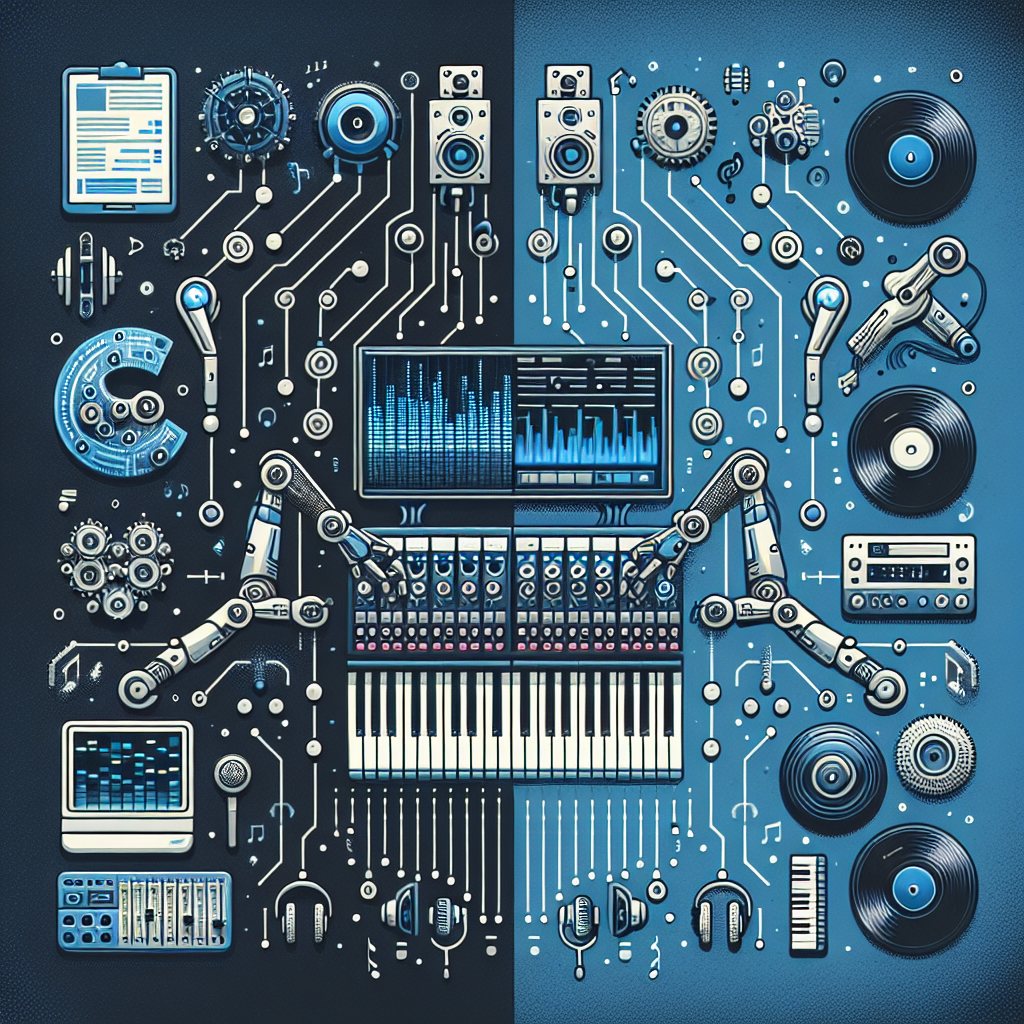Artificial intelligence (AI) has been revolutionizing various industries, and the music production industry is no exception. With AI technology becoming more advanced and widespread, musicians, producers, and music enthusiasts are now exploring how AI can enhance the creative process and push the boundaries of music production. From composing and writing songs to mixing and mastering tracks, AI is reshaping the future of music in unprecedented ways.
AI in Music Composition
One of the most exciting applications of AI in music production is its ability to compose music. AI algorithms, such as deep learning and neural networks, can analyze vast amounts of music data and learn the patterns and structures of different genres and styles. This enables AI systems to generate original compositions that mimic the style of a particular artist or create entirely new and unique musical pieces.
For example, OpenAI’s MuseNet is an AI-powered music composition tool that can generate original compositions in a variety of styles and genres. By inputting a few notes or chords, users can create full-length songs that sound like they were composed by a human musician. MuseNet’s AI algorithms have been trained on a massive dataset of musical compositions, allowing it to produce high-quality music that is indistinguishable from human-made music.
AI in Music Production
AI is also being used in music production to assist with tasks such as mixing and mastering tracks. Mixing and mastering are crucial steps in the music production process, where audio engineers adjust the levels, EQ, and effects of individual tracks to create a polished and professional-sounding final mix. AI tools, such as LANDR and iZotope’s Ozone, use machine learning algorithms to analyze audio tracks and automatically apply processing techniques to improve the overall sound quality.
For example, LANDR’s AI mastering tool analyzes the frequency content, dynamics, and stereo image of a track and applies a series of processing techniques to enhance the clarity, balance, and depth of the mix. This allows musicians and producers to achieve professional-quality results quickly and easily, without the need for expensive studio equipment or technical expertise.
AI in Music Recommendations
AI algorithms are also being used to enhance music recommendation systems and personalize the listening experience for users. Streaming platforms like Spotify and Apple Music use AI to analyze users’ listening habits and preferences and recommend new music based on their tastes. By analyzing factors such as tempo, key, and mood, AI algorithms can suggest songs and artists that are likely to resonate with individual users.
AI-powered recommendation systems can help users discover new music, support emerging artists, and create personalized playlists that cater to their unique musical preferences. By leveraging AI technology, music streaming platforms can offer a more engaging and personalized listening experience that keeps users coming back for more.
Challenges and Limitations of AI in Music Production
While AI technology has the potential to revolutionize the music production industry, there are also challenges and limitations that need to be addressed. One of the main concerns is the potential loss of creativity and originality in music production if AI tools become too dominant. While AI algorithms can analyze and replicate existing musical styles, they may struggle to generate truly innovative and groundbreaking compositions that push the boundaries of creativity.
Another challenge is the ethical implications of using AI in music production, particularly in terms of copyright and intellectual property rights. As AI algorithms generate original compositions and assist with music production tasks, questions arise about who owns the rights to the music created by AI systems. Artists, producers, and music industry stakeholders need to establish clear guidelines and regulations to ensure fair compensation and recognition for AI-generated music.
FAQs
Q: Can AI compose music that is as good as human-made music?
A: AI algorithms have shown the ability to compose high-quality music that is indistinguishable from human-made music in some cases. While AI can replicate existing musical styles and genres, it may struggle to create truly innovative and groundbreaking compositions that push the boundaries of creativity.
Q: How can AI help musicians and producers in music production?
A: AI tools can assist musicians and producers in various aspects of music production, including composition, mixing, mastering, and music recommendations. AI algorithms can analyze music data, generate original compositions, enhance the sound quality of tracks, and personalize the listening experience for users.
Q: What are the challenges and limitations of using AI in music production?
A: Some of the challenges and limitations of using AI in music production include concerns about the loss of creativity and originality, ethical implications related to copyright and intellectual property rights, and the need for clear guidelines and regulations to ensure fair compensation and recognition for AI-generated music.
In conclusion, AI technology is shaping the future of music production in exciting and innovative ways. From composing and writing music to mixing and mastering tracks, AI algorithms are revolutionizing the creative process and pushing the boundaries of what is possible in music production. While there are challenges and limitations to consider, the potential of AI in music production is vast, and its impact on the industry is likely to continue to grow in the years to come.

